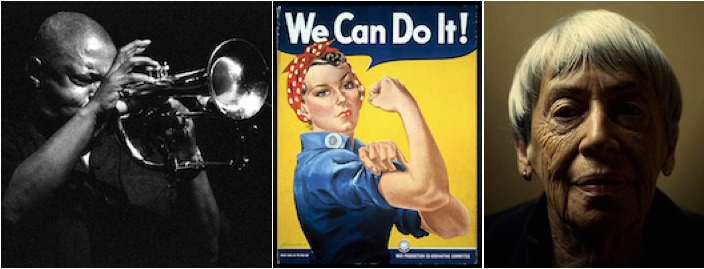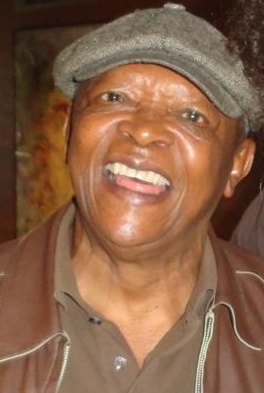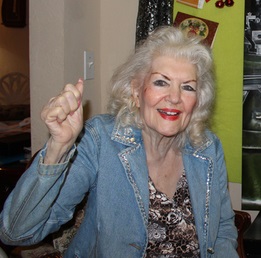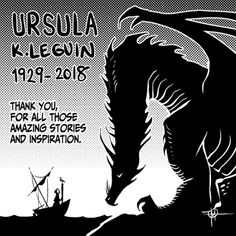Some days, everything you need to know from the newspaper is in the obituaries.

Creative Commons Images of Hugh Masekela and Ursula K. Le Guin. Original Westinghouse Rosie from the National Museum
of American History.
Some days, everything you need to know from the newspaper is in the obituaries. So it was on the day we lost Ursula Kroeber Le Guin, Hugh Masekela, and Rosie the Riveter. To notice this sad news is to gaze back over the three powerful social trends that remade the world after World War II.
It’s a fine bit of irony that these three waves of change swept away the handiwork of the totalitarians offered by the right in the person of Adolf Hitler and by the left in the man charged with turning the Bolshevik Revolution into a governing praxis, Joseph Vissarionovich Stalin. Both Hitler and Stalin promised to remake the world in ways that did not happen after the German and Russian bloodbaths.
The postwar order came with the rise of a robust middle class capable of carrying entire nations to prosperity joined with a worldwide movement for racial equality and — most fundamental of all — a reworking of sex roles to create the world against which violent fundamentalist Islam, the nativist parties in Europe, and the presidency of Donald John Trump represent the defensive ramparts.
Ramopolo Hugh Masekela, 1939-2018
Jazz origins were black, but it transcended those origins and obliterated racial lines against all odds. During the big band era in the U.S., touring with an integrated band caused great inconvenience in putting together places to stay and places to eat. The inconvenience did not matter.

Hugh Masekela, 2013.
Flickr / Creative Commons.
Duke Ellington hired white musicians and Benny Goodman hired black musicians because the driving force was the music. It was the music that forced Hugh Masekela, who had been touring his native South Africa with the Jazz Epistles, to choose exile.
After the Sharpeville Massacre in 1960, more than 10 black people could not gather in South Africa. The Jazz Epistles were sowing the latest jazz sub-genre, bebop, but what was inconvenient in the U.S. — entertaining across racial lines — had become illegal in South Africa.
To this day, it is hard for jazz musicians to earn a living in the U.S., where jazz was born. Still, jazz made cultural incursions into Europe every bit as significant as military incursions and jazz conquered sub-Saharan Africa and Latin America, picking up a little local seasoning in each country.
Masekela never renounced his South African citizenship. He said he was an exile and he said why as he played for racially mixed audiences, denouncing apartheid with his voice and his horn, a horn that became a shofar shaking the ramparts of racism.
Rosie the Riveter (Naomi Parker Fraley), 1921-2018
If Hugh Masekela’s South African trumpet was a symbolic ram’s horn blowing down the walls of inequality, Rosie the Riveter became a human symbol of women’s contributions to beating Hitler and a national awakening to the wasting of women’s skills and competence.
While there was a trend of laying women off to put men back to work after the war, Rosie had shaken things loose and started a wave of demands on the system that remain to this day for parity in wages and working conditions and access to occupations based on ability.
Because Rosie was an artist’s representation of a class of women, identifying the individual who inspired the meme was a challenge. Lots of women had taken up rivet guns and similar tools and lots of pictures were taken of women challenging the idea of “men’s work.”
Rosies came and went over the years until Dr. James J. Kimble of Seton Hall University in New Jersey published the result of six years of research in an academic journal, Rhetoric & Public Affairs, identifying the Rosie of a poster produced by the Westinghouse Electric Corporation with the slogan, “We Can Do It!”
The Westinghouse Rosie is not to be confused with the Norman Rockwell Rosie or Rosalind Walter, a riveter on the Corsair fighter, who inspired “Rosie the Riveter” as a hit song by Redd Evans and John Jacob Loeb. Rosie as a meme was very busy during the war.
Ursula Kroeber Le Guin, 1929-2018
The struggle for racial equality embedded in Hugh Masekela’s music and for women’s economic parity symbolized by Rosie the Riveter became currents in the flow of a new literary genre, speculative fiction, of which Ursula K. Le Guin was a founding mother. Le Guin began wearing the colors of “science fiction,” a genre that involved taking the cutting edge of the hard sciences — astronomy, mathematics, and most often physics — to the edges of human imagination. The most primitive science fiction was the “space opera,” exemplified by the plot of Star Wars IV: A New Hope.
Ursula Le Guin’s parents were Alfred Kroeber, an anthropologist at the University of California, Berkeley, with substantial interest in the Native Americans of California, and Theodora Kroeber, the writer who told the story of Ishi, the last of his tribe to survive the spectacular genocide of California Indians. Ishi lived out his days as a human exhibit in what is now the Hearst Museum of Anthropology, where visitors can still hear his voice on recordings.
Le Guin was raised in the middle of the clash of cultures that destroyed most of indigenous California by parents who studied that clash and participated in it. The turn Le Guin took away from classic science fiction drew on the so-called “soft” sciences of anthropology, sociology, political science, and psychology.
The method was the same as classic science fiction. Her novel, The Left Hand of Darkness, won the top science fiction awards offered by both fans and professional writers, the Hugo and the Nebula. In it, she imagined an intelligent species with no sexes.
In The Lathe of Heaven, she imagined a man who could change the past and therefore the present with his dreams. By request, he dreams an end to racism, war, and overpopulation. All his dreams present nightmares of unintended consequences.
The Dispossessed was a thought experiment that explored major schools of political thought from radical collectivism to anarchism. It duplicated the feat of garnering both a Hugo and a Nebula.
Le Guin moved into fantasy with a trilogy beginning with A Wizard of Earthsea, which might be seen as a precursor to the Harry Potter books because, on Earthsea, magic works. A young man goes off to wizard school and makes an enemy who becomes his nemesis. Sound familiar?
The numerous awards the Earthsea trilogy raked in assumed it was intended for children. Le Guin resisted the pigeonholing and described it as “adult chauvinist piggery.” The current of Jungian psychology in the Earthsea books does not disqualify them as children’s literature because the story works without understanding Jung.
Ursula Le Guin took the cutting-edge trends of the social sciences to the edge of human imagination. In that process, she was bound to explore the upheavals in race relations and sex roles. In one week, we have lost two icons who made those upheavals happen and a writer with the imagination to suggest where things end up after they fall apart. That’s a lot of loss for one obituary page.
[Steve Russell comes to The Rag Blog after writing for The Rag from 1969 to the mid-seventies. He is retired from a first career as a trial court judge in Texas and a second career as a university professor that began at The University of Texas-San Antonio. He is now associate professor emeritus of criminal justice at Indiana University-Bloomington. Russell is a citizen of the Cherokee Nation and a ninth grade dropout. He is living in Sun City, just north of Austin, and working on a third career as a freelance writer. His current project is a book of autobiographical essays explaining how an Indian ninth grade dropout was able to become a judge and a professor without picking up a high school diploma or a GED. He can be reached at swrussel@indiana.edu. ]
- Read more articles by Steve Russell on The Rag Blog.




















I enjoyed this article very much, having already, in my own mind, considered these recent losses. One of the things I like in this piece is the author’s willingness, in his commentary, to include (along with the obviously horrific role of Trump) a reminder of what Stalinism wrought and what “violent fundamentalist Islam” has brought to the current world stage. Too many leftists want to forget about Stalinism and want to denounce “Islamophobia” all too quickly. Thanks to Steve Russell and Rag Blog.
Allen: None of my friends/colleagues on the left are apologists for Stalin, and I don’t know anyone who denounces Islamophobia (as I do) who doesn’t also denounce violence done in the name of Islam.
That’s good.
The way I got to “Do Androids Dream of Electric Sheep?” by Philip K Dick and sadly was turned into a slash and blast ‘sci-fi’ blood-fest “BladeRunner” now, Bladerunner 2. .. was that I was in the Downtown Ft Worth looking up LeGuin’s epic because there was a PBS film of it. That was back in the day when you could get away, socially, with calling a movie a “film”. So there I was pulling Lathe of Heaven off the shelf and there, next to her book, was “Sheep”. It was, in the bane of a library worker’s existence Re-shelved By The Patron which is almost universally WRONG. The title caught my eye. It is good, you know, to realize there was actually somebody else in Ft Worth who had read those books.
As for the Islamophobia question, perhaps the ones who hype Islam as The Major Evil of anybody on earth, I’m Christian. Big Hairy Deal, yes? What that means in real life is that sha’aria law is almost a carbon copy (can you tell I’m old? Who uses carbon paper anymore?) of the Law of Moses, mostly because Islam and Christianity drink from the same well. It’s hard, given the very violent Anti-Islam Cults in Judaism and Christianity, to focus on the FACT that most of the Israelites killed more Israelites than any other group of their enemies did, and killed more Israelites than they did ‘foreigners’ Who just by the miracle of geological proximity also happened to be their cousins. In a similar manner Christian armies killed more Christians on the same manner. Even during the Crusades when the principle targets were supposedly Islam and Judaism, and there were quite a few, Christian on Christian outweighed the attempted genocides of Muslims and Jews COMBINED. And it still goes on. Finger pointing is really, well, Pointless. It’s easier, by far, to have institutions like Governments to spread hatred of The Others than to spread peace.
PK Dick I saw in an interview explaining that what inspired it was at Nuhremburg Tribunals after the … ummm. victory doesn’t seem right as we as a species are still fighting the same war, But the Nazis, repugnant as they were, were judged by the Tribunals using the same Lack Of Empathy the Nazis used. The hangings were ordered and executed by the ones who were fighting the Antipathy and became exactly the same Antipathy. It’s like a living soul that you can’t fight, without being conquered by the same hate you’re destroying.
When the bounty hunter went after the Andies, the major difference between Android and Human was empathy. Humans had it and Andies didn’t. But the hunt for escaped Andies was completely in itself No Mercy, No Empathy.
Israel of old and still, and Christian and Muslim have a similarity in the Law of God, that tears out the very fabric of The Law. In order to condemn somebody else of any breach of the law, you personally can’t judge if you have ever committed the same charge. And you can’t condemn anybody to Death unless you are completely innocent. It ties the Law into knots. In Sha’ariah the same. When a Jewish kid makes the vow Bar or Bat Mitzvah, (s)he has first to study the entire law and demonstrate that before a Rabbi that He Knows What He’s Getting Into, and swear to all Israel to never break any of the commandments in the Law. It’s a trap. The vast majority of any group have never in their lives taken another’s life.
Islamophobia says different. Islamophobia is an excuse for Christian or Jew or Tao or Buddhist or let’s just make it simple and just say “everybody” in every group. Including Islam. To kill Muslims or persecute them in any way the perpetrators feel they can get away with doing.
Cite Muslims of any sect (they’re as diverse as they are alike, just like Christians and Jews) fighting other Muslims is no more nor less than Christian Holy Wars against other Christians. The war we are taught in school to be the French and Indian Wars was a worldwide event and other nations call it the 7 Years War and the war in America wasn’t diddly squat compared to the other places the same war was waged. Hundred Years, Thirty Years, 50 years wars, the Crimean and Napoleonic wars, (In the U.S. that was the War of 1812) Mostly Europeans being slaughtered by other Europeans. One doesn’t have to put the adjective “christian” to it, the evidences speaks for itself.
What’s the difference between Christian Jihad and Muslim Crusade? Effectively none. Except the elders of Islam usually refrain from going around calling every christian and jew in the world a murderer.
My grandfather, Cecil Collins, was a brass performance instructor at Manhattan School of Music for about 20 years. When I was about five, Masekela’s “Grazin’ in the Grass” was all over the radio. Grandpa told me that Hughie Masekela (as we called him then) had studied under him, and that Harry Belafonte himself had referred the freshly immigrated Masekela to MSM to hone his craft.
Masekela didn’t show much interest in classical repertoire or technique, didn’t think a conservatory had much to teach him, Grandpa told me much later. But he stuck with it, and the rest (including that revelatory appearance at Monterey in 1967) is music history.
I am re-reading Le Guin. What a great author! I heartily recommend her No Time to Spare, a collection of essays. The first three or four are about being old, a topic that is of some relevance to some of us.
Le Guin is a master. Here might be her best short story –
https://genius.com/Ursula-k-le-guin-the-ones-who-walk-away-from-omelas-annotated